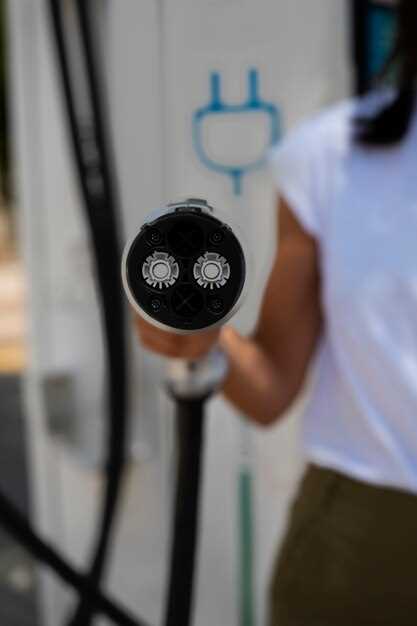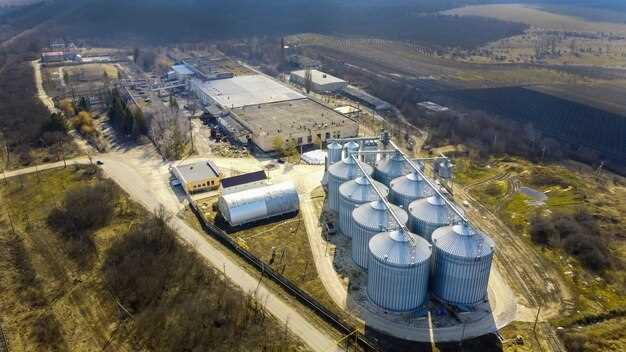
In the ever-evolving landscape of automotive technology, the need for efficient and reliable fuel systems has never been more critical. Upgrading these systems can lead to significant enhancements in power output and operational dependability. Fuel pumps, as a central component, play a crucial role in ensuring that the right amount of fuel reaches the engine under varying conditions. As vehicles become more sophisticated, so too must their fuel systems.
Modern engines demand high-performance fuel delivery to maximize efficiency and power. An upgraded fuel pump can deliver consistent pressure and flow rates, which are essential for optimal combustion. Reliable fuel systems minimize the risk of engine knock and improve throttle response, enabling drivers to experience the full potential of their vehicles.
Furthermore, advancements in technology allow for the integration of advanced materials and designs within fuel pump systems. This not only enhances durability but also optimizes performance, reducing the likelihood of fuel vapor lock and ensuring that even during extreme conditions, fuel delivery remains uninterrupted. Investing in upgraded fuel systems is not just about boosting horsepower; it is about ensuring long-term reliability and performance in today’s demanding automotive environment.
Choosing the Right Fuel Pump for Optimal Performance

Selecting the appropriate fuel pump is crucial for achieving optimal performance in any fuel system. The pump serves as the heart of the fuel delivery system, ensuring a consistent supply of fuel to the injectors under varying operating conditions. An inadequate pump can lead to insufficient fuel pressure, resulting in poor engine performance and reliability.
When choosing a fuel pump, consider the pump type, flow rate, and pressure rating. There are two main types of fuel pumps: mechanical and electric. Mechanical pumps are generally used in older vehicles, while electric pumps are prevalent in modern systems. Electric pumps are often preferred for their ability to deliver higher fuel flow rates and maintain consistent pressure, essential for high-performance engines.
Flow rate is another critical factor. It is measured in gallons per hour (GPH) or liters per hour (LPH) and should match or exceed the demands of the engine and fuel injectors. If the pump cannot deliver sufficient flow, the engine may suffer from lean conditions, leading to misfires and potentially severe damage.
The pressure rating of the fuel pump must also align with the specifications required by the injectors. Different injectors operate optimally at specific pressures, and using a pump that does not provide adequate pressure can hinder the injectors’ performance. Always refer to the manufacturer’s recommendations for both the pump and injectors to ensure compatibility.
In addition, consider the fuel type being used. Some pumps are designed specifically for gasoline, while others are built to handle alcohol-based fuels or high-octane racing fuels. Ensuring compatibility with the fuel type prevents corrosion and degradation, which can significantly impact performance.
Finally, look for pumps from reputable manufacturers known for durability and reliability. Reviews and performance tests can provide insights into how well a pump performs under various conditions, further guiding your decision and ensuring your fuel system operates at its best.
Maximizing Injector Efficiency for Improved Engine Dynamics

Injector efficiency plays a crucial role in the overall performance of an engine. The precise delivery of fuel directly impacts combustion efficiency, which in turn enhances power output and reliability. To maximize injector efficiency, several key factors must be considered.
First, the fuel pump must be adequately matched to the engine’s requirements. An efficient pump not only ensures that the right amount of fuel reaches the injectors but also maintains optimal pressure. If the fuel pump underperforms, it can lead to uneven fuel distribution, resulting in poor engine dynamics.
Next, the design and condition of the injectors are paramount. Upgrading to high-performance injectors can significantly improve atomization, allowing for better mixing with air and enhanced combustion. Regular maintenance and cleaning of injectors are also vital to prevent clogging, which can degrade performance over time.
Fine-tuning the injector pulse width is essential for optimizing fuel delivery. Utilizing advanced engine management systems allows for real-time adjustments based on engine load and speed, ensuring that the injectors operate at peak efficiency during all driving conditions.
Furthermore, the fuel quality should not be overlooked. High-quality fuel with appropriate additives can enhance injector performance by reducing deposits and improving overall combustion chemistry, thereby supporting a cleaner burn and more reliable operation.
Finally, integration with other fuel system components, such as fuel rails and pressure regulators, is critical. Ensuring compatibility and optimal flow dynamics across the entire fuel system creates a harmonious environment for injectors to function effectively, leading to improved engine responsiveness and longevity.
By focusing on these aspects, engine performance can be significantly enhanced, ensuring that maximized injector efficiency leads to better power delivery and reliability on the road.
Integrating Fuel System Components for Reliable Operation
Integrating various fuel system components is crucial for achieving optimal reliability and performance in modern engines. The fuel pump and injectors play pivotal roles in this integration process. A high-quality fuel pump ensures a consistent and adequate supply of fuel to the injectors, maintaining the necessary pressure for effective combustion.
When selecting a fuel pump, it’s essential to consider its compatibility with the injectors. Factors such as flow rate, pressure range, and fuel type must align to achieve seamless operation. An underperforming pump can lead to inadequate fuel delivery, causing misfires or poor acceleration, while an overpowered pump may result in excess pressure that can damage the injectors.
Injectors are designed to atomize fuel for efficient mixing with air, optimizing the combustion process. However, their efficiency is directly impacted by the quality of the fuel supplied. A well-integrated system ensures that the injectors receive clean fuel at the correct pressure, enhancing reliability and prolonging their lifespan. Regular maintenance and monitoring can prevent issues such as clogging or wear, which could compromise engine performance.
Moreover, incorporating advanced technologies like electronic control units (ECUs) allows for real-time monitoring of fuel system performance. This integration enhances the communication between the pump and injectors, allowing for adjustments based on operating conditions. Such adaptability can significantly improve fuel efficiency and reduce emissions.
In conclusion, the successful integration of fuel system components hinges on the synergy between the pump and injectors. Ensuring compatibility, maintaining cleanliness, and leveraging technology are essential strategies to achieve reliable operation and enhanced overall performance.











